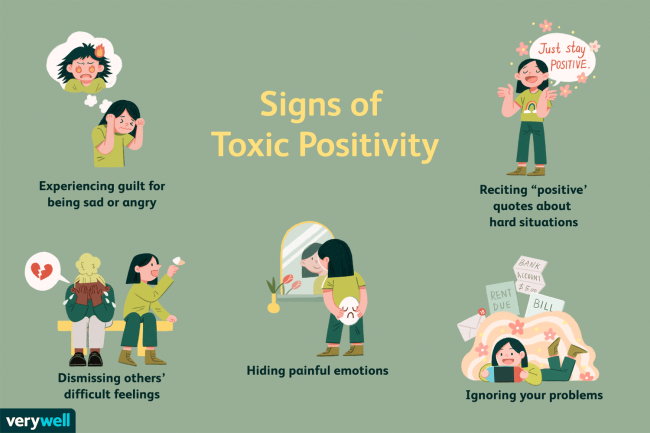Good Vibes Only?
Hi everyone, it's Karen here. I'm excited to discuss the what-the-heck effect with you this week. An important takeaway from this week's lesson is this: When we perceive we have broken a rule or acted "badly," we have a strong urge to bypass feeling the negative emotions of that decision. This partly explains why we continue to eat the whole carton of ice cream, once we broke down and allowed ourselves to have a bowl. We viewed eating that bowl of ice cream as a naughty thing, so instead of dealing with that, we just go ahead and keep eating ice cream as a way to distract from negative emotions and make ourselves feel better.
A credible argument can be made that today's culture has a very "good vibes only" feel. And why not? There are endless ways to distract and numb ourselves from uncomfortable thoughts and feelings. But there is a real downside to living life this way. So real, in fact, that experts have now coined a term called "toxic positivity." It describes an approach to life where any seemingly negative emotions are minimized, denied or discarded. The unintended consequence is that it denies people the authentic support they need to cope with what they are facing.
Unpleasant feelings are just as important as enjoyable ones in helping you make sense of life's ups and downs. The primary reason we have emotions in the first place is to help us evaluate our experiences. So we really are doing ourselves and our mental well-being a great disservice when we try to ignore or suppress negative feelings. Emotions are information that can help us know what we need to do to care for ourselves. But it is also important to understand that emotions are not facts, or judgements about you as a person. Just because you feel guilty for eating that ice cream doesn't mean you are a guilty person!

